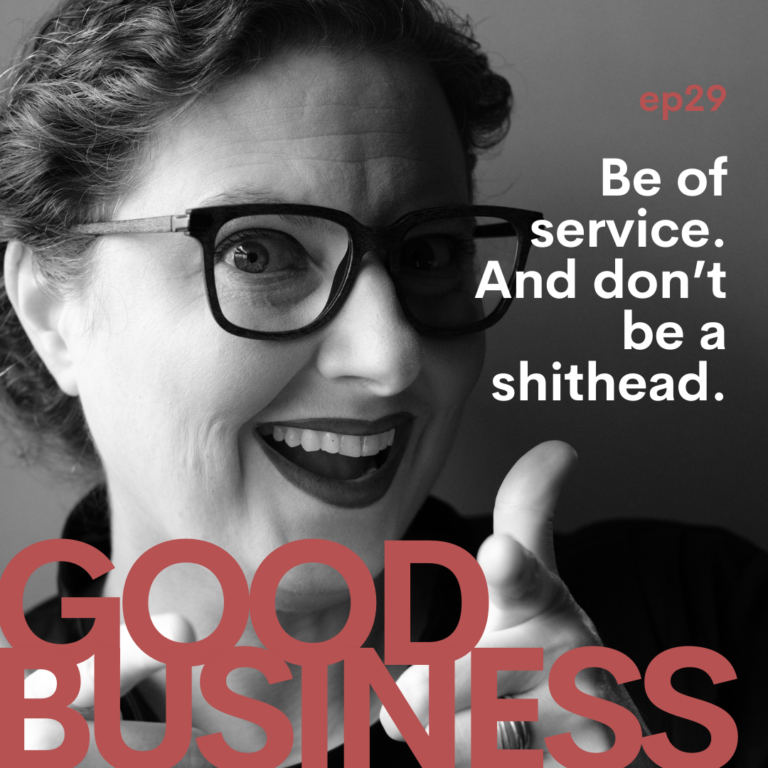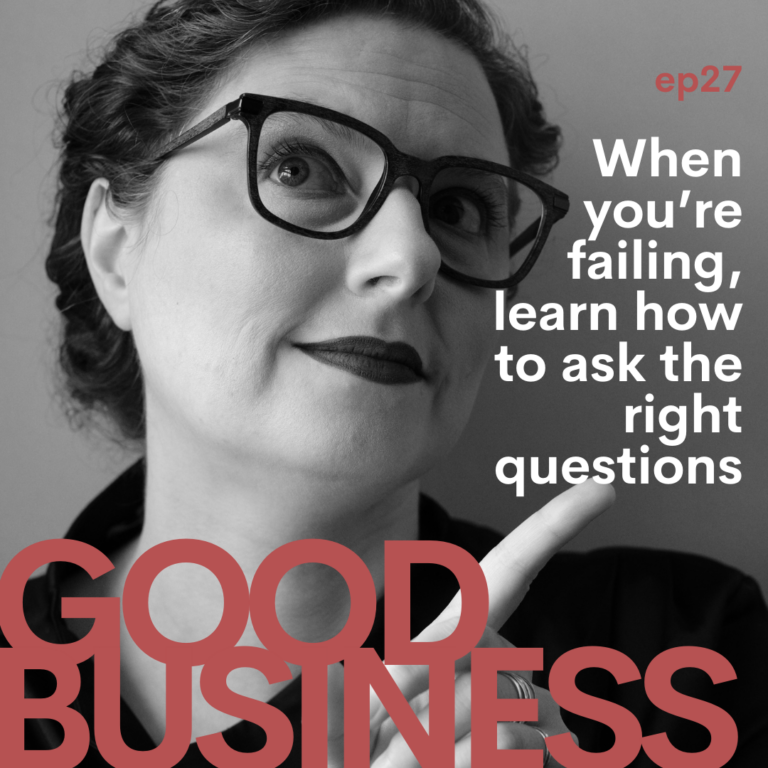Navigating feedback can be daunting. In this episode, we dive into the skills of asking for and receiving feedback with intention and grace. Learn the art of crafting your asks to elicit constructive insights and how to gracefully accept the advice given, filter through biases, and grow from the experience. Whether it’s refining your creative process or enhancing your professional journey, we share actionable tips on making feedback work for you.
Listen now to learn the strategies that will help you embrace feedback not as criticism, but as a valuable tool for personal and professional growth.
Perfect for creators, innovators, and anyone looking to level up their feedback game. And stay tuned for the upcoming episode on giving feedback!
How to Ask for and Take Feedback
Welcome back, everyone! Today, we’re diving into a topic that frequently sparks those “oh my god, why can’t people get out of their own way?” conversations I often have at dinner. We’re talking about how to ask for and take feedback. Next episode, we’ll cover how to give feedback effectively.
Feedback is one of those areas where many think they excel, yet few truly do, especially in the age of the internet, where feedback mechanisms can sometimes devolve into marketing ploys or avenues for venting personal frustrations. Remember when we could buy a toaster without consulting 25 strangers online? Neither do I.
Why Feedback Matters
Feedback is crucial; it challenges us to grow and improve, particularly in creative fields. But it’s an art, not just a set of algorithms.
How to Ask for Feedback Like a Pro
1. Be Discerning: Ask the right people. Don’t take a shotgun approach to feedback which leads to decisions based on a wide but irrelevant set of opinions.
2. Be Specific: Clearly outline what you need feedback on, including relevant context and what types of feedback you aren’t looking for.
3. Format Matters: If you’re writing, break up your text. Long paragraphs are daunting and often not fully read. Structuring your request can greatly influence the quality of feedback you receive.
4. State Your Biases: Be upfront about your attachment to the project and how much feedback you can realistically handle without feeling overwhelmed.
5. Be Prepared for the Response: Engage with the feedback you receive. This is not just about hearing what you want to hear, but also about learning from diverse perspectives.
How to Take Feedback
1. Understand the Source: Make sure the feedback is coming from someone relevant to your request. A spouse might be supportive but not the best critic for your business website if they lack the perspective of your target audience.
2. Separate Yourself from Your Work: This can be challenging, especially for creatives and solopreneurs, but it’s crucial for growth.
3. Be Proactive: Do your research and ensure your work is as polished as possible before seeking feedback. This prevents basic questions that could have been answered with a little initiative.
4. Be Engaging: Respond thoughtfully to feedback. Ask follow-up questions and share how you’ve used the advice you’ve received. This respects the time of those who helped you and enriches the community.
Conclusion
Asking for feedback requires understanding both the context of your work and the perspectives of those you engage. Effective feedback is a tool for growth, illuminating blind spots and offering new paths forward. So, harness it wisely, and remember, every piece of feedback is a stepping stone to betterment.
Stay tuned for our next episode on giving feedback like a rock star, because mastering both sides of this process can dramatically enhance how we communicate and grow. Have a wonderful spring, and I’ll see you in a couple of weeks. Bye!
More Episodes
Why you shouldn’t start a membership site | GB31
Today's episode is all about how to look a little closer at the ever-growing trend of membership sites all over the place and how to know if you should jump on the bandwagon or not. Episode Transcript: I'm Illana Burk, CEO of...
Four not shocking disappointments in a time of crisis | GB30
Today’s episode is about the simple idea that your business exists not just to support you and your stakeholders, but to support your community.
Be of service and don’t be a sh*thead | GB29
Today's episode is all about how to not be a jerk in the middle of a crisis. Episode Transcript: I'm Illana Burk, CEO of Your Life's Workshop, coach to entrepreneurs and solopreneurs across dozens of industries and host of Good...
Avoid the piles of bricks | GB28
Today, we talk all about that craptastic feeling of being buried. Underwater. Crushed by the weight of big ideas, neverending task lists, and elephant-sized goals. First, we’ll talk about what this really means and the ways in which this feeling tends to show up, along with a little on how we tend to behave as a result. Then we’ll talk about a simple way to handle these moments better. And finally, we’ll wrap up with a healthy pep talk.
When you’re failing, learn how to ask the right questions | GB27
Today’s episode is all about how to not shoot yourself in the foot right out the gate. I’m gonna break down one very common mistake that newbies (and non-newbies) make and how to fix it. Today, we learn how to ask for help and guidance in a way that doesn’t completely fuck up your chances of getting what you ACTUALLY need, which is respect.
Why overdelivery is the enemy of getting rehired | GB26
Today’s episode is all about why over-delivering is a really good way to not get asked back for more work. We all think doing our best and giving more than people asked for is a good thing. And in some ways, it is. Things like adding extra value to something you do is fine. What I’m talking about is when you completely blow the scope of what was asked of you out of the water. It’s one of the hardest things to identify when you’re trying to figure out why no one seems to hire you twice.






